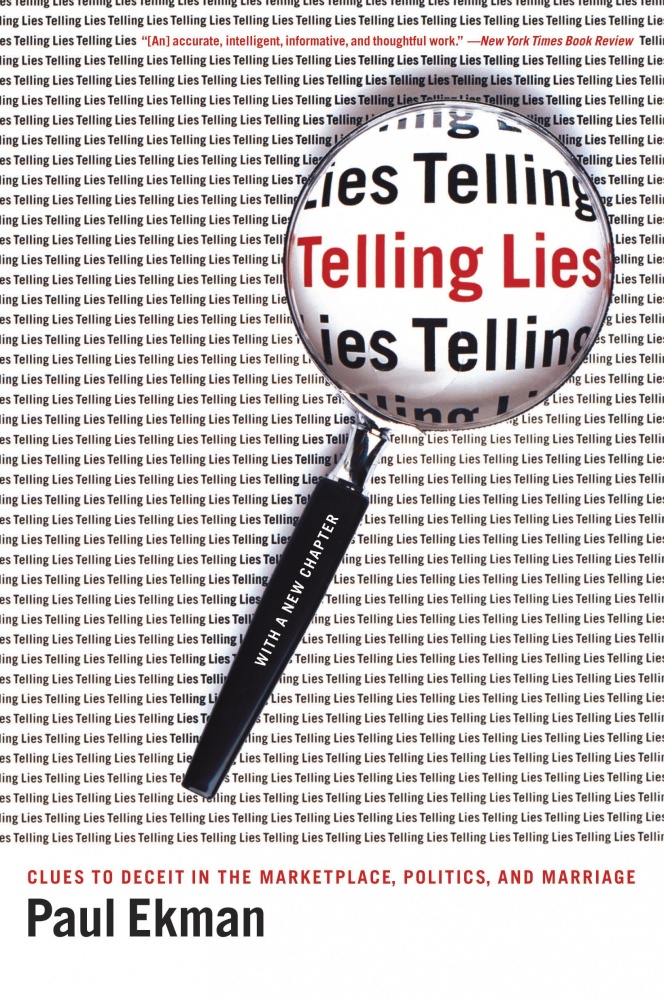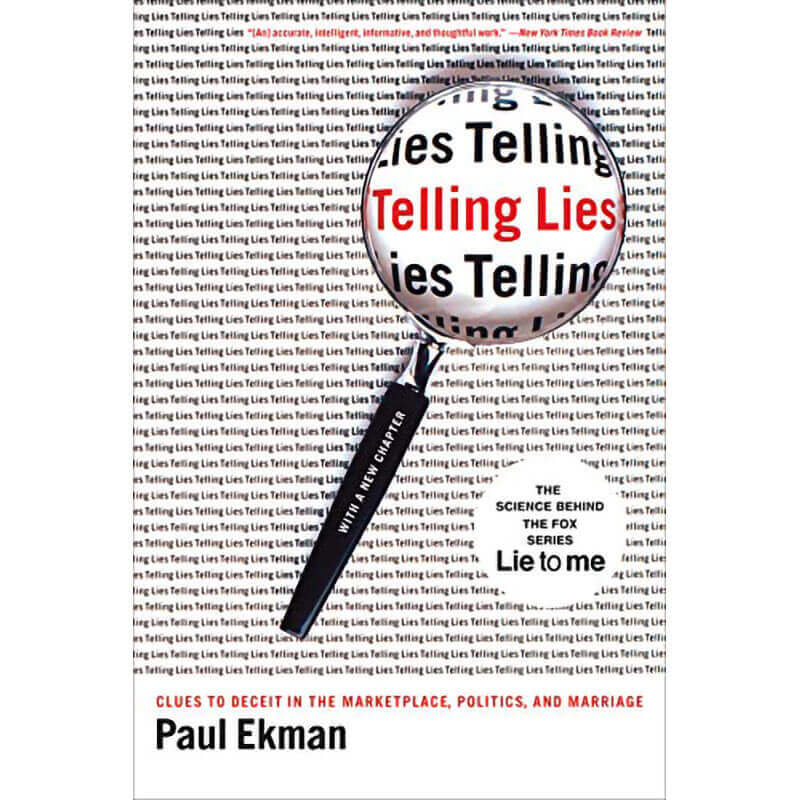September 2009

Why Lies Fail
When asking why lies fail, it’s important to remember this:
Not all do.
- “Can’t talk now, just on the way out the door”.
- “I love your new dress.”
- “What a great evening, thanks so much.”
- “Sorry, couldn’t get a babysitter.
Which lies fail?
Instead of asking why lies fail or succeed, instead turn your attention to the type and circumstances of the lie.
Such lies of every day life usually go undetected because the target wants to be misled. It would be rude if the truth were to be told:
- “I don’t want to talk to you now, or ever.”
- “The dress is totally inappropriate for someone your age, and the color is wrong to boot.”
- “The food was dull and the company worse.”
- “I don’t want to get stuck wasting another evening.”
And, it would also be rude if the target challenged whether the truth was being told.
Trivial lies
Another reason such trivial lies succeed is because nothing is at stake, the liar doesn’t expect to be questioned, doesn’t fear being caught. If by accident the target later found out that the truth had not been told, what had been said was an excuse or flattery, no harm done.
Research shows that it is easy to tell such trivial lies precisely because nothing much is at stake, so there will be no clues to deceit in demeanor. Of course many lies – trivial or serious — are detected not from what the liar said or how he or she said it, but from other sources unrelated to the liar’s demeanor. A witness observes a violation of the lie, or some physical evidence (lipstick on the shirt collar), for example.
Serious lies
It is only when a lot is at stake, when not only a valued reward would be lost but also punishment will be delivered if the lie is uncovered, that there is a chance that the liar’s demeanor will betray the lie.
“No, I am not the least bit angry; I really appreciate your criticism.”
“If you lie, I will catch you…”
In one of my research studies I gave the participants the opportunity to take money that wasn’t theirs and lie about it, or not take the money and truthfully proclaim their innocence.
When I began my interrogation I held up my book Telling Lies, saying, “I wrote this book. If you lie, I will catch you but if you tell the truth I will know it.” I was trying to increase the fear of being caught in those who were about to lie and decrease the fear of being mistakenly judged a liar, reassuring those about to be truthful.
Show no fear
Since the signs of fear look exactly the same for a liar afraid of being caught and a truthful person afraid of being disbelieved, signs of that emotion are useless unless there is reason to believe that only the liar will be afraid.
Fear increases the more that can be gained if the lie goes undetected. Fear increases with the severity of the punishment for being caught is severe. The truthful person afraid of being mistakenly identified as a liar also will be more afraid when the threatened punishment for that mistaken judgment is severe.
Remembering the Scott Peterson Case
Past success in telling a particular lie – multiple arrests but no convictions, many affairs never suspected, drug use not noticed by parents – generates confidence, just as a target known to be suspicious increases fear. Liars who have the opportunity to rehearse will be less afraid of being caught.
Scott Peterson showed many examples of fear in his initial police interrogation. His wife Laci, eight months pregnant, was reported missing on December 24, 2002. After he changed his story about where he was when she disappeared, and his massage therapist girlfriend came forward revealing that he had told her two weeks before Laci’s disappearance that his wife was “lost,” the police became suspicious. A retired law enforcement officer and I reviewed a videotape of his first interrogation at the request of the local police. We did not then know the girlfriend’s story.
Peterson showed many micro expressions and some not-so-micro expressions of fear; still, we had to consider whether it might be an innocent husbands fear of being disbelieved. There were so many other forms of leakage that we were convinced he was the murderer. Peterson was sentenced to death. His case is on appeal to the Supreme Court of California. He maintains his innocence.
Emotion’s role in believability
Lies about a strong emotion felt right at the moment are the hardest to tell successfully. It doesn’t matter which emotion is denied: anger, fear, disgust, contempt, excitement, enjoyment, sadness or surprise. Each of these emotions generates involuntary changes in facial expressions, voice, gaze and posture. Most people cannot deliberately inhibit or cover every manifestation of an emotion when it is felt strongly. The emotional load – the burden of trying to conceal any sign of the emotion that is churning away – interferes also with the ability to speak coherently and convincingly, so that the words spoken may also betray the lie.
Many lies are not about emotions felt at the moment; rather they conceal a past action, plans for a future action, thoughts, attitudes, or values. If the discovery of the lie could result in punishment, then the liar will have emotions about engaging in the lies. These feelings about lying will generate involuntary changes in demeanor that can betray the lie.

